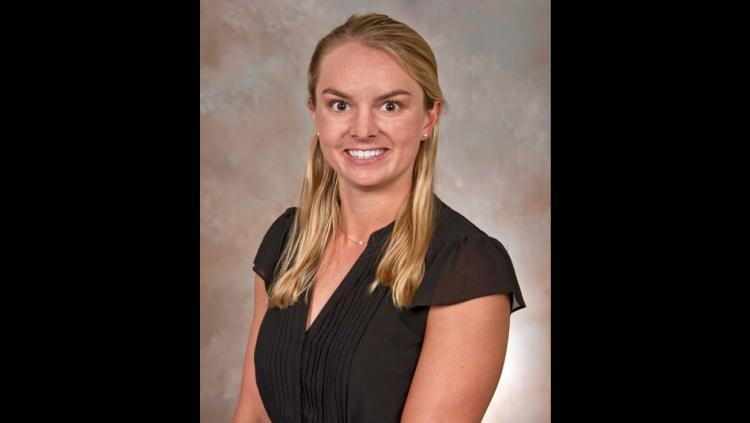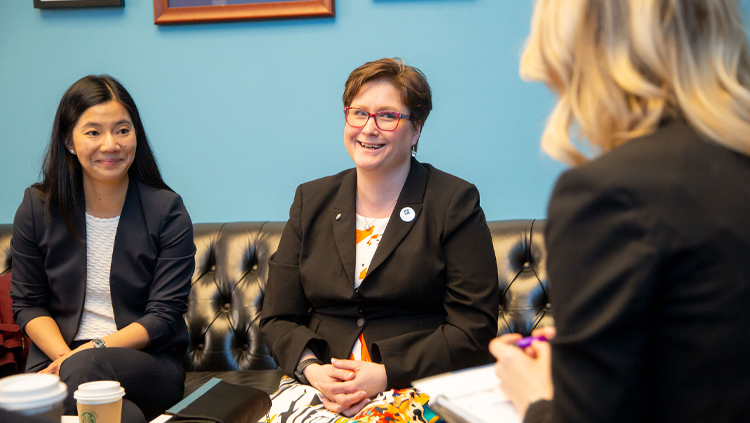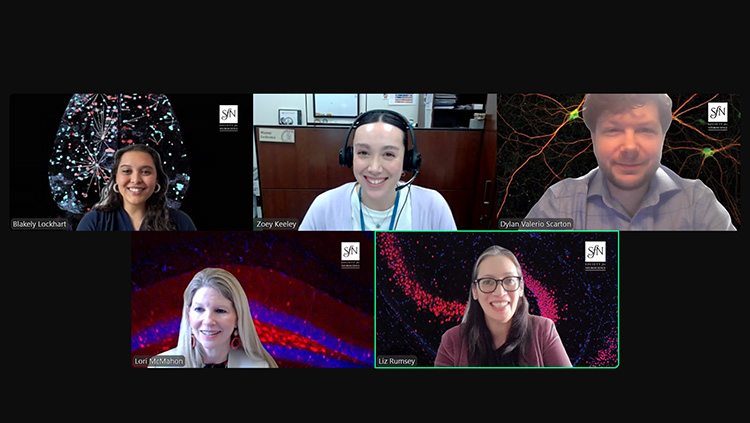
This interview is part of the “Meet the ECPAs” collection, which spotlights current Early Career Policy Ambassadors (ECPA) on their careers, interest in science policy, and current advocacy work. Read onto learn about Claire Robey, a fifth-year PhD student at Uniformed Services University hoping to address the lack of sex-disaggregated data in traumatic brain injury (TBI) research as a 2024 ECPA.
Describe your journey in neuroscience and current research.
I discovered my passion for neuroscience through my psychology studies at St. Mary’s College of Maryland (SMCM). At SMCM, I minored in neuroscience and worked as a research assistant for Aileen Bailey. My research entailed investigating the compound L-655, 708, a negative allosteric modulator of GABA-A receptors containing α5-subunits, and its potential viability as a fast-acting antidepressant. I entered into clinical research beginning with a summer internship at Walter Reed National Military Medical Center (WRNMMC) in the Brain Fitness Center, where I studied the effects of computerized cognitive training on service members with traumatic brain injury (TBI). After graduating, I worked as a clinical research assistant for Rael Lange at WRNMMC on a longitudinal study investigating the natural history of TBI in service members. Through this position, I gained valuable experience communicating daily with TBI patients and learned first-hand the physical and neurobehavioral symptoms they struggled with in recovery. These interactions are what drove me to pursue a doctoral degree and continue to shape my research questions to what will translate directly to improving patient care for service members with TBI. I am now a fifth-year graduate student at the Uniformed Services University (USU) in Joseph McCabe’s lab where I study the chronic behavioral and pathological effects of repeated mild TBI and its relationship to tauopathy in preclinical models.
Why are you interested in science policy and advocacy?
The lack of sex-disaggregated data in TBI research, a broader issue in much of biomedicine, sparked my interest in science policy and advocacy. During my clinical research experience, female participation was noticeably low. Transitioning to animal models in graduate school, I expected sex differences to be a preclinical priority, given the 2016 NIH mandate to include sex as a biological variable. However, despite including both sexes as I have in my research, many studies fail to analyze for sex-based variations. My goal is to bridge this critical data gap through policy and funding reforms. Specifically, I want to advocate for stricter enforcement of current NIH policies regarding sex inclusion and promote the vital importance of sex-based analysis in research.
What does being an ECPA mean to you? Can you describe the two advocacy-related projects you proposed as part of the program?
I am honored to be selected as an ECPA. This program provides a fantastic opportunity to develop the advocacy skills I need to significantly impact my field. I’m eager to augment my knowledge and expertise in science policy, and I also see this as an opportunity to become a resource for my colleagues. I plan to share what I learn in this program and encourage more neuroscientists to get involved in science policy and advocacy.
My first project is a ‘Neuroscience Policy’ section for my graduate program’s newsletter. This section provides an opportunity for me to share the knowledge and skills I have learned from my time in the ECPA program by writing different articles regarding science policy and advocacy. I hope to also recruit other students in our program to write pieces for this section of the newsletter in order to sustain the project after I graduate. My second project idea is to host a workshop at USU, where several researchers are studying TBI, to highlight the critical importance of understanding TBI in females. I hope to invite experts who can speak to this issue and encourage investigators to consider sex as a biological variable in their research. We will discuss existing policies and advocacy efforts regarding sex differences in TBI research, best practices for incorporating sex as a biological variable, and key areas where further policy and advocacy are essential.
How has being an SfN member benefited you in both your professional career and advocacy journey?
SfN membership has enhanced my professional development. Conferences and programs, such as ECPA, have provided a platform for learning, networking, and staying current in my field. Attending SfN’s annual meeting has been the perfect chance to learn about the latest findings in neuroscience research, network with those in my field, and attend professional development workshops. I always leave feeling excited about my research and more knowledgeable about the next steps in my career. In my first few months as an ECPA, I have already learned so much about the intricacies of the legislative process and the language of policymaking. As I navigate potential career paths, the ECPA program offers a unique window into science policy options. Regardless of my ultimate career trajectory, I'm confident that SfN is equipping me to be a lifelong advocate for scientific progress. The knowledge and skills I'm gaining will undoubtedly translate into effective advocacy efforts.
What is one fun fact about you that you would like to share?
I played soccer in college and that is what initially sparked my interest in concussion/TBI research (and the need for more studies on female athletes!)











